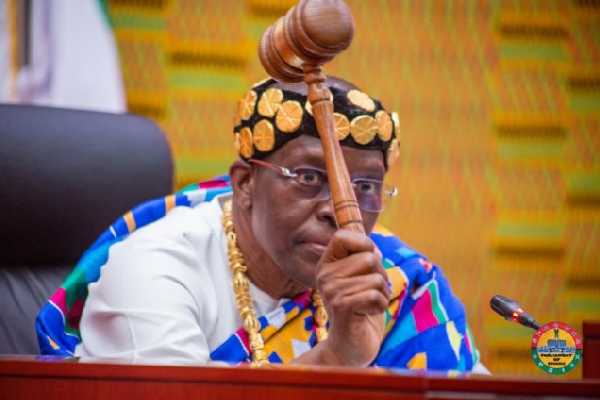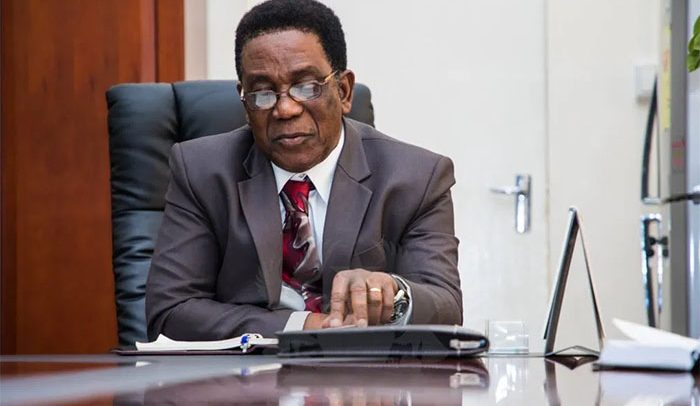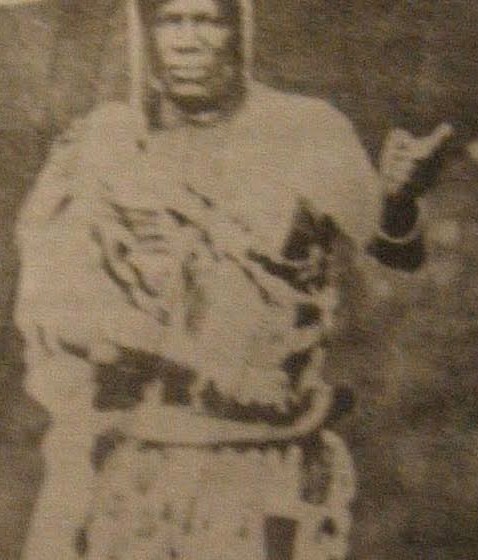
1. To start with, there is absolutely no debate that ONLY the Supreme Court has the EXCLUSIVE JURISDICTION to INTERPRET the provisions of the Constitution [See Article 130(1)]. Simply put, as held in Ex Parte CHRAJ (Interested Party – Hon. Dr. Richard Anane), “the Constitution means what the Supreme Court says it means”.
2. There is also no debate that the Supreme Court assumes its interpretative jurisdiction whenever there are real justiciable controversy or rival interpretations in respect of any provision of the Constitution [See Afenyo-Makin v AG & Speaker of Parliament; Ex Parte Akosah; Ex Parte Zanetor].
3. Even if we were to assume without admitting that the Speaker was clothed with the authority to interpret the Constitution, his interpretation of Article 97(1)(g)&(h) is completely wrong.
4. The 4 MPs were elected by their constituents to represent them in the 8th Parliament (not the 9th Parliament) for 4 years, ending on January 6, 2025, on the ticket of their respective political parties and as Independent Member in the case of the Fomena MP. That is the social contract the 4 MPs have signed with their constituents. None of the 4 MPs has breached this social contract. They all say, they are still committed to serving their constituents on the ticket of the respective political affiliations that brought them to Parliament, until the expiration of their 4-year mandate.
5. None of the 4 MPs is seeking to remain in the 8th Parliament on a different political vehicle other than that which he/she rode on to Parliament, which Article 97(1)(g) clearly frowns on. The only thing they are saying is that, after completing their tenure at the end of the 8th Parliament, they intend, if their constituents will allow them, to serve them in the next Parliament (9th) on a different political vehicle. So, where is the fraud or deception the Speaker was talking about?
IS ARTICLE 97(1) PROSPECTIVE OR OTHERWISE?
6. The Speaker completely rejected the invitation for him to give a futuristic/prospective effect to Article 97(1)(g)&(h) on grounds that if he did that, it would render the constitutional provision (i.e. Article 97(1)(g)&(h) useless and superfluous, as no MP could be caught by that provision. The Speaker’s assertion cannot be true. Article 97(1)(g)&(h) will be very much relevant even if it is construed prospectively.
7. What it would mean is that Article 97(1)(g)&(h) were intended by the framers of the constitution to be applicable to an MP who crosses carpet within the life of a Parliament (say, 8th Parliament) and still wants to keep his job as MP in the same Parliament (8th). A typical example is what we saw in the case of Hon. Wayo Seini, the then NDC MP for Tamale Central, who formally announced his decision to resign from the NDC to join the NPP during the life of the same parliament. He had to vacate his seat by the operation of Article 97(1)(g).
8. The framers could not have intended that the provision (i.e. Article 97(1)(g)) should apply to an MP’s intention to choose a different political path in future parliament. No MP or citizen of Ghana can be tied to a particular political party for the rest of his life, as that would make nonsense of the constitutional right to freedom of association enshrined in Article 21(1)(e) of the Constitution as well as Articles 55(2) and 55(10) on the right of every citizen of Ghana of voting age to join any political party of his choice.
9. Clearly, the mischief that Articles 97(1)(g)&(h) intend to cure, is a situation where MPs, at their own will, move from one parliamentary caucus to another, thereby, disrupting the composition of parliament and tilting the balance of power in the legislature based on compromises or compulsion as we saw in the 1st Republic under President Nkrumah. That is why the Constitution says, if an MP crosses carpet, he has to vacate his seat and go back to the voters (his constituents) to decide through a by-election, whether they still want him to represent them on the new ticket.
10. However, what the 4 MPs have done or are seeking to do, does not amount to crossing carpet. That is why the composition of the 8th parliament regarding the numerical strength of the Majority and the Minority Caucuses has remained UNCHANGED even after filing their nominations with the EC. Therefore, the ambit of Article 97(1)(g)&(h) relates to MPs who cross carpet within the life of the very parliament they were elected to serve in. It has nothing to do with the future ambitions of MPs.
11, The doctrine of RIPENESS in law requires that only matters that have arisen, should be dealt with by the law, and not future or uncertain or unknown matters [See NPP v NDC & AG]. The court deals with what has actually occurred or failed to occur when it ought to have occurred. Indeed, ripeness is the basis for the court declaring an action as PREMATURE.
12. That was why when Hon. Teye Nyaunu, the then NDC MP for Lower Manya Krobo, in the 5th Parliament, filed nomination with the Electoral Commission to contest as an Independent Parliamentary Candidate to serve in future parliament (the 6th Parliament), his seat was not declared vacant, because the matter was not ripe.
13. It was also the reason why when Hon. Joe Osei Owusu, an Independent MP for Bekwai in the 5th Parliament, filed nomination to contest as an NPP Parliamentary Candidate [just like the Fomena MP] to serve the people of Bekwai in the next parliament (6th), his seat was not declared vacant. The examples in the 4th Republic are numerous. One cannot say more!!!
Assalamu alaikum
Source: Lawyer Iddi Muhayu-Deen







